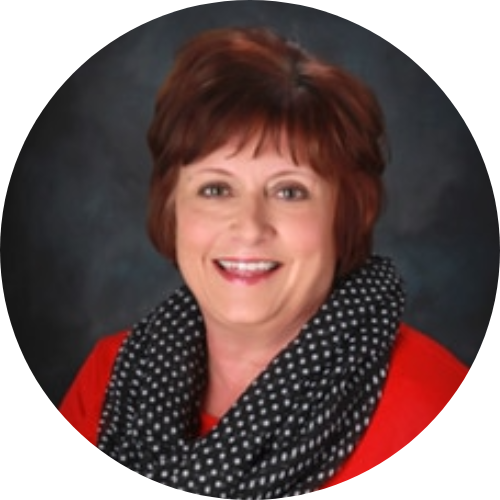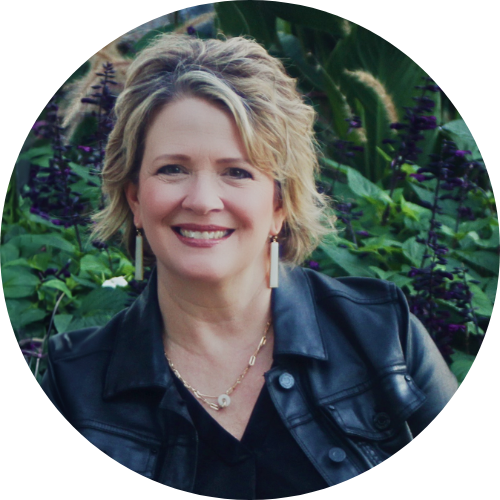Conference Sessions
3rd Annual SD CHW Conference Sessions
May 21 & 22, 2024
Sioux Falls Convention Center
Below is an overview of each Keynote Speaker’s presentation along with descriptions of the CHW/CHR pre-conference sessions and sessions in each of the four tracks.
Keynote Speakers

Tifanie Petro
Children’s Home Society
Creating a Trauma-Informed Workplace
A trauma-informed organization starts with each of us. This process of moving from trauma-informed care and practice into trauma-informed workplaces is not an easy journey. Through this session, we will highlight the foundational practices to start to take how we care for clients and apply it to how we engage within our workspaces. This session will help participants start conversations about what is going well and what needs to be done to be a trauma-informed organization.

Kay Glidden
Compassion Resiliency
Refuel, Reset, and Replenish: Tools for Resiliency
We now have over two decades of research demonstrating that working in high-stress, trauma-exposed professions, such as community health, carries risk to staff. The level of compassion fatigue and secondary trauma can ebb and flow from one day to the next. Even very healthy staff with optimal life/work balance and self-care strategies can experience compassion fatigue and secondary trauma. Participants will improve their understanding of compassion fatigue, secondary trauma, and burnout and will be given new and practical tools, resources, and strategies to include in daily self-care planning for improving health and resiliency.

Melissa Hiatt
Levav Leadership Consulting
The Power of Vulnerability
Vulnerability feels like weakness, but it’s not. Vulnerability is our greatest measure of courage. This session will explore vulnerability, invite participants to identify their call to courage as leaders, and provide the skills necessary to rumble with vulnerability, all while improving emotional health and building resiliency.
CHW/CHR Pre-Conference Sessions
CHWs and CHRs can register for 2 of the 4 sessions.
Prepared Not Scared*
Working with patients and clients can bring about unexpected situations, sometimes even emergency situations. Within this interactive session, attendees will learn basic CPR – a lifesaving technique that’s useful in many emergencies in which someone’s breathing or heartbeat has stopped. Attendees will also learn the basics of using an AED (automated external defibrillator). The session will wrap up with a presentation and Q&A with a rural sheriff’s department to better understand how to report and respond to emergencies. *Note: This session will only be available during the first session from 8:30-9:45 AM CT.
Poverty Escape Room
This interactive session is a simulation of a day that someone in poverty lives. The activity takes the story of a specific person in poverty and allows participants to re-enact their daily routines by visiting booths set up to represent locations one may stop at. The purpose of doing this is to help bring awareness to issues that people in poverty face
QPR Suicide Prevention and CHW’s Role in Suicide Prevention
QPR (Question, Persuade, and Refer) Gatekeeper Training for Suicide Prevention is a 1-hour educational program designed to teach lay and professional “gatekeepers” the warning signs of a suicide crisis and how to respond. Gatekeepers can include anyone who is strategically positioned to recognize and refer someone at risk of suicide (e.g., CHWs and CHRs). The process follows three steps: (1) Question the individual’s desire or intent regarding suicide, (2) Persuade the person to seek and accept help, and (3) Refer the person to appropriate resources. Trainees receive a QPR booklet and wallet card as a review and resource tool that includes local referral resources. The session will wrap up with a local CHW’s perspective on how CHWs can assist in suicide prevention and response.
Understanding Shame and its Antidotes Empathy and Self Compassion
Shame is the intensely painful feeling or experience of believing that we are flawed and unworthy of love and connection. If shame is pervasive, it kills courage. Empathy and Self-Compassion are the antidotes to shame and the foundation of trusting relationships. This session will help participants establish healthy connections with those they are working alongside.
First Breakout Sessions
Community Engagement and Leveraging Community Partnerships with CHWs
Hear from South Dakota CHW programs that have established partnerships with other organizations and CHW programs to embrace collaboration to ensure patient/client needs are met. Additionally, learn more about how providers are working with community-based organizations and CHW programs to coordinate referrals to address Social Determinants of Health (SDoH).
Sustaining CHWs: Reimbursement, Lessons Learned, and ROI Successes
Although South Dakota was one of the last states to develop a CHW workforce, South Dakota was one of the first states to have Medicaid reimbursement for CHW and CHR services. Learn more about the roadmap to sustaining CHWs through Medicaid reimbursement and how Medicaid reimbursement can be “braided in” with ROI successes to sustain positions. This session will also briefly discuss Medicare reimbursement opportunities.
What You Do Makes a Difference: How to Protect Yourself Through Infection Control
CHWs and CHRs continue to request information on how to protect themselves from exposure when completing home visits, in addition to staying safe in healthcare settings. This education includes opportunities to understand how CHWs and CHRs can find protection for themselves and for the families they go home to. Infection control also becomes important in protecting the clients or patients that they are seeing.
Domestic Violence 201 – Understanding from a CHW/CHR Perspective
This session provides an in-depth look at domestic violence, including how to recognize and report signs of domestic violence. Hear firsthand from a CHW who works with victims of domestic violence to understand the CHW’s role in responding to and addressing domestic violence – all while working to keep the individual safe.
Second Breakout Sessions
Tobacco Cessation Intervention and the SD Quitline and Engaging CHWs to Increase Cancer Screenings
This presentation covers the impact of tobacco use in South Dakota, tobacco use disorder, and the importance of tobacco cessation intervention and finally cessation programs, most notably the South Dakota QuitLine. The goal of this presentation is to demonstrate the role CHWs can plan in increasing the demand for and improving community access to cancer screening. In addition, attendees will better understand who should be getting screened for these cancers and share resources that are available in South Dakota to minimize common barriers to screening.
Community Resiliency Model: Taking Care of Ourselves While We Take Care of Others
The Community Resiliency Model® class allows individuals to take a deep dive into the rich material of CRM. These classes and workshops focus on building up and practicing wellness skills in order to decrease stress and live fully into our best selves.
Home Again: Medicaid Support to Return or Continue Living in the Home
Learn more about Home Again (formerly Money Follows the Person), a South Dakota Medicaid program that helps people living in nursing homes, hospitals, or intermediate care facilities. Services are provided for either: elderly (65+), those with physical disabilities, and/or those with intellectual and development disabilities to successfully return to live in their own homes and communities. Home Again helps people finding a place to live that meets their needs and wants and helps them find the services they need to keep living there.
Bystander to Upstander*
This training shows that by going from bystander to upstander—someone who holds their coworkers accountable for bad behavior—you can turn a toxic workplace into a supportive environment where employees are able to do their best work. *Note: This training will extend an additional 30 minutes beyond the end of the session time to allow for the full training.
Third Breakout Sessions
Tips for Improving Client Interaction and Communication
Why is everyone so tense? We may need some new ideas for improving our communication and interaction with clients. This presentation will provide tips for increasing your confidence and building skills while maintaining professionalism and compassion. Communication tips such as using “I” statements and mindfulness will be reviewed. Improving interaction such as working with difficult people, establishing rapport, de-briefing and de-escalation will also be discussed.
An Overview of the IHS Community Health Representative (CHR) Strategic Plan and Collaborations with the South Dakota CHW/CHR Workforce
The National CHR Strategic Plan was developed to support the vision and intended actions of the National CHR Program. CHR programs and partners across the country can use the Plan as a guide to enhance CHR efforts in supporting the health and well-being of AI/AN individuals, families, and communities. Tribal CHR programs may adapt and prioritize the goals, objectives, and strategies in ways that align with community and program needs. Key partners may also use the Plan to understand and support the National CHR Program’s priorities for expanding the provision of comprehensive and culturally affirming services for AI/AN communities.
Opioid Awareness and Naloxone Training
This session will cover the critical aspects of opioid use, overdose prevention, and the administration of naloxone, a medication that can reverse opioid overdoses. Attendees will learn how to administer naloxone to an individual experiencing an opioid overdose. Become a proactive community member equipped with the tools to raise awareness, respond effectively to opioid emergencies, and contribute to saving lives.
SD Health Link – Benefits and Impacts to the CHW/CHR Role
South Dakota Health Link (SDHL) is a multi-state Health Information Exchange that delivers critical health information at the point of care. SDHL allows healthcare professionals to see clinical information about their patient from across the entire SDHL network, allowing clinical information to follow the patient. Having access to this information allows the care team to have the most up-to-date picture of their patients care including major health conditions, allergies, medications, diagnostic results, and filled medication information. Hear from CHWs and CHRs who utilize SD Health Link on a daily basis to help their patients/clients better navigate healthcare in South Dakota.
Fourth Breakout Sessions
Introducing Nexus SD (Community Information Exchange)
Nexus SD is a statewide collaboration of health care, human, and social service providers sharing information using an integrated technology platform and referral system to coordinate whole-person care. Learn how you can become a member of Nexus SD, including the timelines for enrollment, legal considerations, etc. This session will also feature an overview of the findings of implementing Nexus SD in a few pilot communities in South Dakota.
Erasing Infant Mortality and Improving Maternal Care
This session explores innovative strategies and interventions aimed at addressing the critical issues surrounding infant mortality rates and maternal healthcare. This session will provide insights into the latest research, policies, and community-based initiatives that contribute to saving infant lives and enhancing the overall well-being of mothers.
Cultural Considerations When Working as a CHW/CHR (Panel)
Hear from five CHWs and CHRs working with diverse populations as they highlight successes in building trusting relationships through culturally competent care and support. This panel discussion will focus on understanding the importance of culture in healthcare as well as the successes of cultural connections between CHWs and CHRs and the patients/clients they serve.
Communications with Private Payers – Considerations in Designing a Benefit for CHW Services
Learn more about the work the CHWSD is doing to ensure that private payers (i.e., health insurance plans) are aware of the work of CHWs and CHRs in South Dakota. This session will include a summary of how CHWs and CHRs can advocate for their programs with private payers to continue efforts to receive private payer reimbursement.
